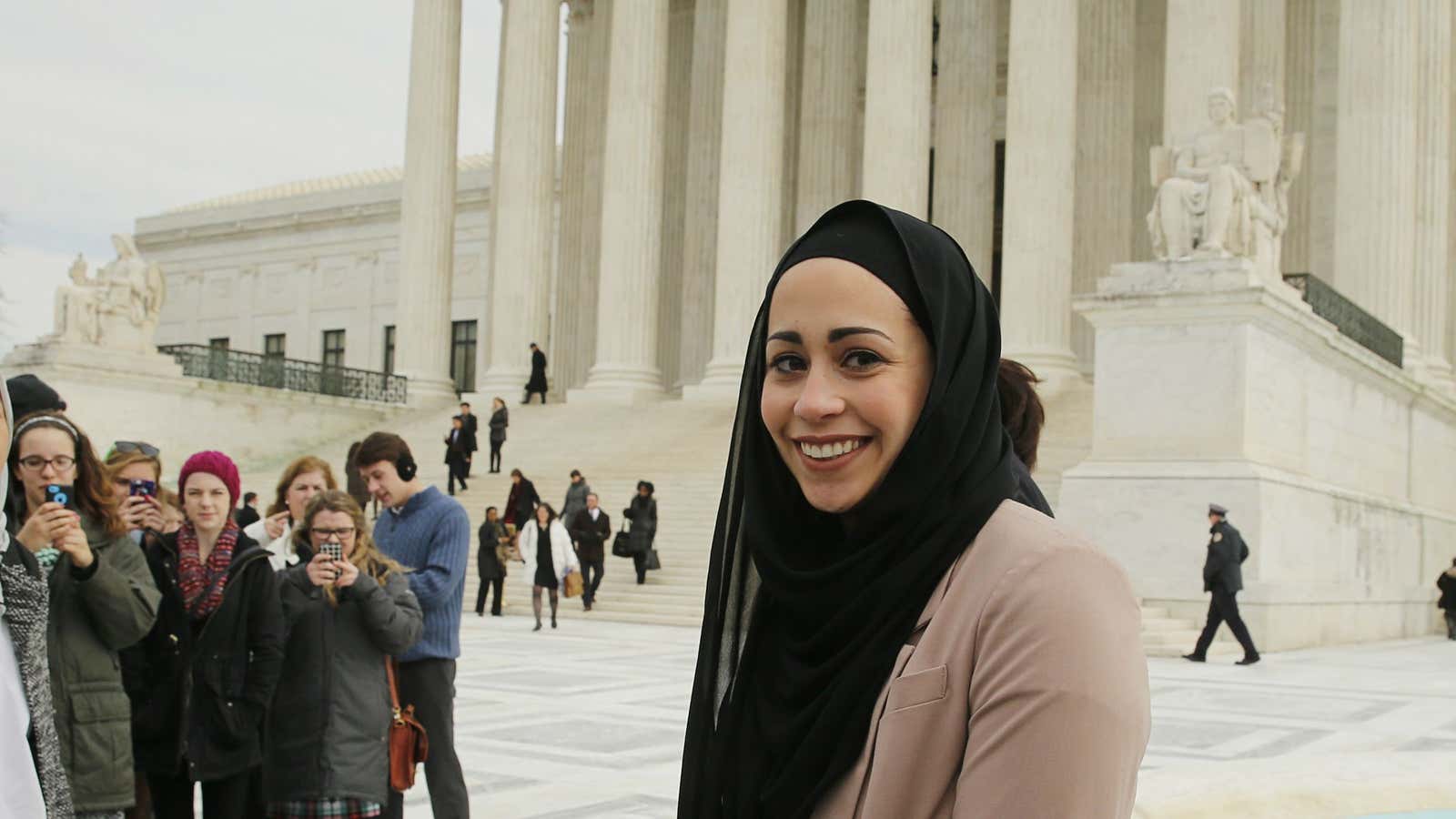The US Supreme Court heard testimony yesterday in the case that pits Samantha Elauf, a Muslim woman who wears a hijab, against the clothing retailer Abercrombie & Fitch, which denied her a job because her head-covering did not meet the company’s “look policy.”
As Quartz has reported, the case turns on the question of whether it is a worker’s or an employer’s responsibility to raise the issue of a religious head-covering, in order for federal law to protect the worker from religious discrimination.
Justice Samuel Alito (perhaps for the first time bringing the phrase “fashion statement” into Supreme Court deliberations) painted a hypothetical picture of four prospective employees, the Washington Post reported:
“The first is a Sikh man wearing a turban, the second is a Hasidic man wearing a hat, the third is a Muslim woman wearing a hijab, the fourth is a Catholic nun in a habit,” he said. “Now, do you think . . . that those people have to say, ‘We just want to tell you, we’re dressed this way for a religious reason. We’re not just trying to make a fashion statement.’”
Essentially, yes, said Justice Antonin Scalia, who the Washington Post reported was the only one to voice support for Abercrombie & Fitch’s side of the case. He suggested that the onus fell on Elauf to bring up her religious reason for wearing the hijab.
“If you want to sue me for denying you a job for a religious reason,” said Scalia, “the burden is on you to say, ‘I’m wearing the head scarf for a religious reason, or I’m wearing the beard for a religious reason.'”
Other justices, including Sonia Sotomayor, asked why Abercrombie & Fitch hadn’t stated its no-head-covering policy outright and asked Elauf whether she would have an issue complying. (The retailer has since relaxed its policy to accommodate hijabs.)
Sotomayor, consummate New Yorker, suggested that a simple, “You have a problem with that?” would have been sufficient.
In some ways, it seems that where Abercrombie & Fitch went wrong was in attempting to sidestep a potentially awkward conversation—by denying Elauf the job. The retailer’s lawyer, Shay Dvoretzky, said that asking Elauf about her headscarf would be “asking employers to treat applicants differently based on stereotypes or assumption about whether something is likely a religious practice.”
But Abercrombie & Fitch assumed Elauf wore the head-scarf for religious reasons, and then refused her a job.
Said Justice Elena Kagan: “Now, between those two options, the option of using a stereotype to make sure that somebody never gets a job and using a stereotype to have an awkward conversation, which does this statute seem to think is the worst problem?”
